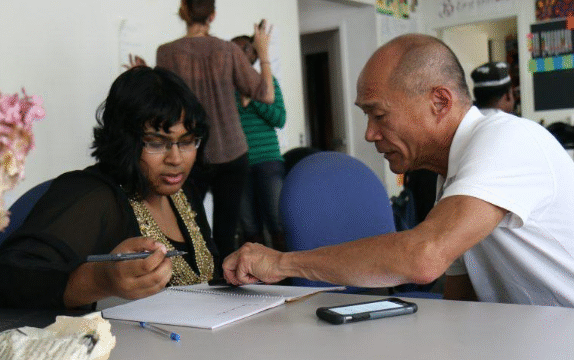Education is not limited to classrooms anymore. Today, students
are exploring new ways to strengthen their knowledge and prove
their skills beyond traditional schooling. One of the most effective
tools in this journey is the learning certificate. These certificates, often awarded through online platforms, workshops, or training programs, have become a valuable part of a student’s growth and career preparation. They not only showcase what someone has learned but also help students stand out in an increasingly competitive world.
For many students, learning certificates open doors to opportunities that were once hard to access. Instead of waiting to complete an entire degree, a student can demonstrate specific skills in a short amount of time. Whether it is mastering a software tool, learning digital marketing strategies, or exploring data science, certificates provide a focused way of showing progress. This flexibility is particularly appealing to students who are balancing coursework with part-time jobs, internships, or personal responsibilities.
Another important benefit is confidence building. Certificates are tangible proof of hard work and determination. When a student earns one, it provides a sense of accomplishment that fuels motivation to keep learning. This boost in confidence often translates into improved performance in both academic and personal pursuits. Knowing that their effort has led to a recognized achievement gives students the encouragement they need to tackle more challenging subjects.
Employers today also value students who go beyond standard education. A certificate demonstrates initiative, curiosity, and the willingness to stay up to date with modern skills. Even for part-time jobs or internships, students who can present certificates on their resume often make a stronger impression. For example, a marketing student with a social media certification can showcase real-world knowledge that may not yet be covered in their degree program. Similarly, a computer science student with certificates in cybersecurity or artificial intelligence signals to employers that they are preparing for the future of technology.
Beyond career advantages, certificates also help students develop a habit of lifelong learning. In a world where industries are changing quickly, the ability to learn continuously is more important than ever. By completing short courses and receiving certificates, students train themselves to adapt, stay curious, and be open to new ideas. This adaptability not only supports their future careers but also enriches their personal lives, making them more resourceful and resilient.
For students who plan to continue their studies, certificates can serve as stepping stones. For instance, a certificate in project management may spark an interest in pursuing a related minor or even a graduate degree later. Similarly, certificates in specialized areas like healthcare technology or renewable energy can guide students toward emerging fields they may not have considered otherwise. These experiences can shape career choices and provide direction during times when students feel uncertain about their next steps.
Certificates also encourage networking and collaboration. Many certificate programs include online forums, live discussions, or group projects where students interact with peers from around the world. These connections expose them to diverse perspectives and expand their professional network early in their academic journey. Networking is not just about making contacts; it is about learning from others and finding inspiration in their experiences. Students who participate in such programs often gain both knowledge and friendships that last beyond the course.
One of the most practical benefits of certificates is how quickly they can be earned. Unlike traditional degrees that may take several years, certificates often require only a few weeks or months of focused effort. This shorter timeline makes them especially appealing to students who want to learn something new without committing to long-term programs. The quick turnaround also allows students to build a collection of certificates in different areas, giving them a well-rounded portfolio that showcases versatility.
Accessibility is another key factor. Many certificate programs are available online at affordable costs, and some are even free. This makes it possible for students from different backgrounds to access quality learning opportunities without financial strain. As digital education continues to grow, students have more options than ever to learn at their own pace and convenience. The ability to study from home or on the go ensures that education fits into their lifestyle rather than the other way around.
Certificates also bring clarity to students who may still be exploring their interests. By taking short, focused courses, they can test the waters before committing to a full academic path. For example, a student considering a career in design might first take a certificate in graphic design. If they find the subject engaging, it can lead to further studies. If not, they can pivot quickly without investing years in a field that may not suit them. In this way, certificates reduce uncertainty and provide guidance in decision-making.
Parents and educators also see the value of certificates. For parents, it is reassuring to see their child gaining additional skills that support their academic journey. For teachers and professors, certificates complement classroom learning by reinforcing concepts and providing practical applications. When students bring in knowledge from external programs, it often enriches classroom discussions and inspires others to pursue similar opportunities.
The digital world has created endless opportunities for students, and certificates are one of the best ways to take advantage of these opportunities. They prove dedication, show initiative, and highlight skills that go beyond textbooks. Students who embrace certificates often find themselves better prepared for both their careers and personal development. More importantly, they discover the joy of learning for its own sake, which is perhaps the most lasting benefit of all.
In conclusion, learning certificates are not just pieces of paper; they are milestones that reflect effort, growth, and potential. They help students build confidence, open career doors, encourage lifelong learning, and provide clarity about future goals. By taking advantage of these opportunities, students can turn their academic years into a time of exploration, achievement, and preparation for the world ahead. As the education landscape continues to evolve, certificates will remain a powerful way for students to showcase their abilities and embrace the future with confidence.






